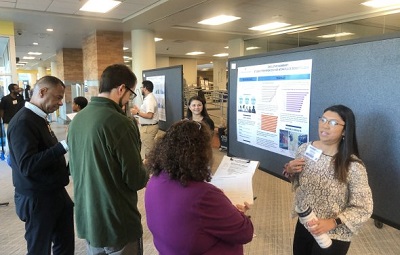Tarsila do Amaral: The Question of Cultural Appropriation and Acculturation
Description/Abstract/Artist Statement
Supported by her parents in her academic and artistic studies, modernist painter Tarsila do Amaral dedicated herself to creating works that could celebrate the beauty of Brazilian culture, and bring light to Brazilian identity. After her exposure to the new European artistic movements while studying in Paris, such as cubism, futurism, and expressionism, the artist became the face of the modernist movement in Brazil. While international scholarship emphasizes the creation and recognition of Brazilian art and identity, Brazilian scholarship focuses on the social and historical context of what it really means to be a Brazilian artist. Tarsila’s paintings can be read as a combination of both perspectives. International media has long ignored issues of cultural appropriation that are central to Tarsila’s art, which has reinforced a hegemonic European narrative at the expense of specific local identities. While a traditional etic approach to scholarship seems to offer objective information, an emic study of Brazilian culture will show how Tarsila’s paintings pre-digest an idea of indigenous culture for European viewers. These two concepts will bolster the argument that is highly contentious amongst native scholarship. To understand how Tarsila is seen in the national scheme, this research will question the concepts of cultural appropriation in the painter’s narratives that have been long ignored by the international media.
Faculty Advisor/Mentor
Vittorio Colaizzi
Faculty Advisor/Mentor Department
Art
College Affiliation
College of Arts & Letters
Presentation Type
Oral Presentation
Disciplines
Arts and Humanities
Session Title
Art History Session 1
Location
LearningCommons@Perry Library, Room 1306
Start Date
3-30-2024 9:30 AM
End Date
3-30-2024 10:30 AM
Tarsila do Amaral: The Question of Cultural Appropriation and Acculturation
LearningCommons@Perry Library, Room 1306
Supported by her parents in her academic and artistic studies, modernist painter Tarsila do Amaral dedicated herself to creating works that could celebrate the beauty of Brazilian culture, and bring light to Brazilian identity. After her exposure to the new European artistic movements while studying in Paris, such as cubism, futurism, and expressionism, the artist became the face of the modernist movement in Brazil. While international scholarship emphasizes the creation and recognition of Brazilian art and identity, Brazilian scholarship focuses on the social and historical context of what it really means to be a Brazilian artist. Tarsila’s paintings can be read as a combination of both perspectives. International media has long ignored issues of cultural appropriation that are central to Tarsila’s art, which has reinforced a hegemonic European narrative at the expense of specific local identities. While a traditional etic approach to scholarship seems to offer objective information, an emic study of Brazilian culture will show how Tarsila’s paintings pre-digest an idea of indigenous culture for European viewers. These two concepts will bolster the argument that is highly contentious amongst native scholarship. To understand how Tarsila is seen in the national scheme, this research will question the concepts of cultural appropriation in the painter’s narratives that have been long ignored by the international media.


